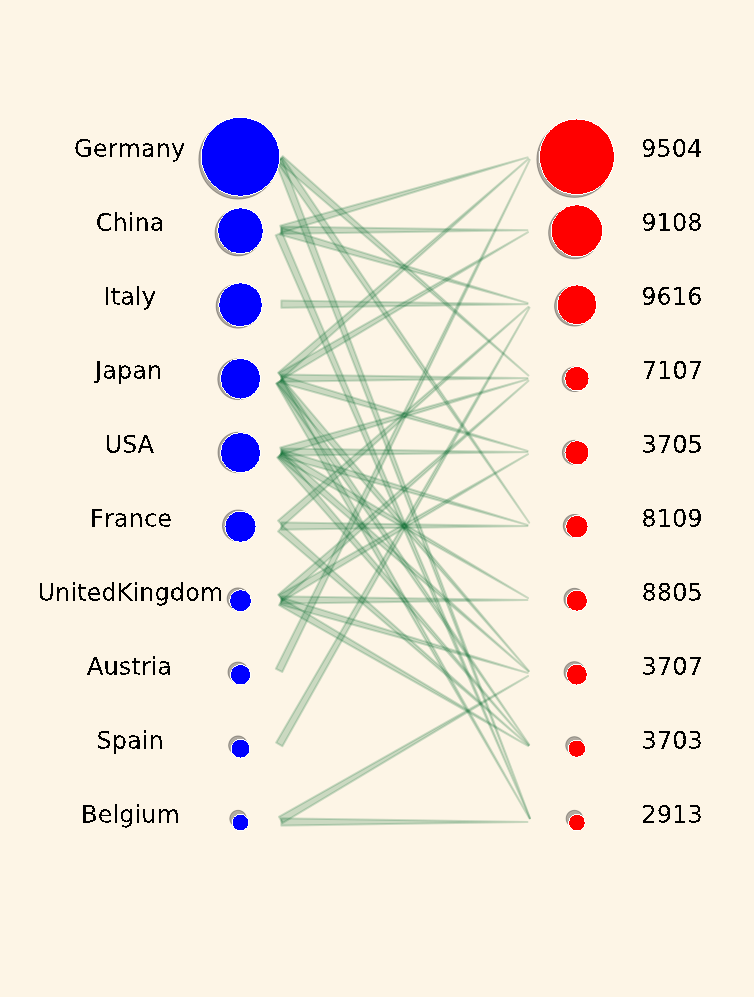Why industrial strength is born from diversity
Diversity -- not specialisation -- is the advantage.
When I was invited to speak at a conference in Bonn some years ago, my host insisted that I stay with him, rather than in the conference accommodation. I expected to find myself in a suburb of Bonn, but instead we drove to a tiny village with just 5,000 inhabitants 130km away.
The bonus was that this was July 4, on which date each year a local Philharmonic group put on an open-air concert on the banks of an nearby extinct volcano’s caldera lake. The whole town was there for the event, and my host introduced me to a lovely old couple sitting on a park bench.
As we walked away, he explained that they ran the major factory in the village. I asked what they produced, expecting some processed rural produce.
“Satellites,” he replied.
Satellites. In a town of 5,000 people. That experience, more than any other, conveyed to me the gap between the industrial strength of Germany and what passed for a manufacturing sector in Australia.
But how could a factory in a town of just 5,000 people produce products as complex as satellites? Because they were part of the enormous network of similarly specialised German firms who produced everything else needed to make satellites.
I was reminded of that experience by an excellent paper at the conference I’m currently attending in Shanghai, the International Conference on Econophysics. Econophysics is a recently new specialisation in which physicists have turned their attention (and their methods) to economic and financial issues.
The presenter, Professor Luciano Pietronero of the Sapienza University of Rome, took on one of the sacred cows of conventional economics, the principle of comparative advantage. This principle, first enunciated by David Ricardo back in the early 1800s, argued that the world as a whole would be better off if countries specialised in what they were good at, rather than attempting to produce the entire range of commodities themselves.
The introduction to the Wikipedia entry puts it this way:
"In economics, comparative advantage refers to the ability of a party to produce a particular good or service at a lower marginal and opportunity cost over another. Even if one country is more efficient in the production of all goods (absolute advantage in all goods) than the other, both countries will still gain by trading with each other, as long as they have different relative efficiencies."
I’ve always had my own issues with this principle, which I’ll cover in another column. But Luciano’s approach deserves priority because, as a physicist, he did what physicists do: tested the theory against the data.
The implication of Ricardo’s hypothesis is that countries which have a more specialised industrial structure will be better off than those with a less specialised one, since they would reap the advantages of specialisation more completely than countries with a more diversified industrial structure.
Luciano and his colleagues found precisely the opposite result: the more specialised a country was in its production, the poorer it tended to be (with the sole exception of oil exporters). When they arranged countries in order of the number of products that they produced, the ones with the largest number of products tended to be the most developed (or the fastest growing), while those with the lowest number of products tended to be the under-developed.
His group derived a new measure of national competitiveness they called “fitness”, which was derived by a nonlinear amalgamation of the number of products produced and their relative complexity. I can’t reproduce all of his analysis here because some is new research that is as yet unpublished, but Figure 1 shows the top ten countries in his study, along with the number of products they produce. It was no surprise for me to see Germany at the top of that list.
Figure 1: Countries ranked by their fitness

The implication for countries wishing to grow was that the best way to do so was to develop a diversified industrial structure, not a specialised one. That is the exact opposite of conventional economic advice.
The intuition to their finding is that it is companies that actually specialise, not countries. But to specialise effectively it helps if the inputs you can’t produce yourself are produced nearby, by suppliers with whom you can interact, who over time will improve the inputs you buy from them. A feedback process between a producer and its suppliers leads to the competitive evolution of the product itself.
The same message -- though with an anecdotal rather than statistical approach -- can be found in Michael Porter’s book The Competitive Advantage of Nations. Porter’s message was that the relevant scale for specialisation was not the nation, but much smaller entities (regions or in some cases small towns) and the relevant entity was the firm rather than the nation itself. Also, a successful industry in such a country tended to have several dominant firms and, in another welcome departure from economic dogma, these firms were not “perfectly competitive” but had well-known brands and highly specialised (if very similar) products. Think Ferrari, Lamborghini, Maserati -- all Italian firms and all from Northern Italy.
So it’s diversity that leads to success, not specialisation. Not only because firms benefit from an ecosystem of suppliers, but also because the decline of one industry doesn’t take the whole country down with it. And yet politicians, schooled in the simplistic models of economic theory, believe they’re doing good when they promote trade agreements that are predicated upon specialisation at the country level being a good idea.
















